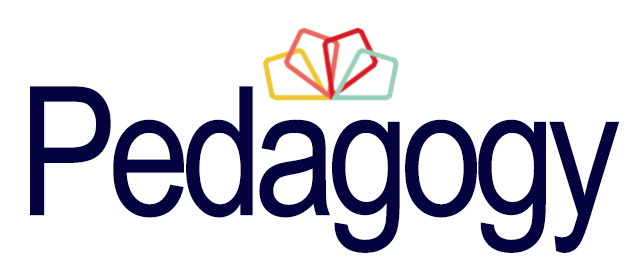
Introduction
Practice-based learning (PBL) is a central component of physiotherapy education within the United Kingdom (UK), with 1,000 hours required for learners to become Health Care and Professions Council (HCPC) registered (CSP, 2016). Placement educators assess learners in practice and are vital to placement provision, success and the future workforce. Despite this there is no standardised training available within the UK, leading to understandable differences in practice (CSP, n.d.). In turn learner satisfaction on placement can differ, and this is something anecdotally heard by academic staff. This project aimed to combat some of these challenges.
Overall aims
-
Improve educator confidence in assessment and feedback on placement.
-
Improve learner placement experience.
-
Develop learner professionalism skills.
-
Celebrate good practice.
-
Strengthen university and placement links.
Methods
Part 1:
-
A survey was used to determine topics are beneficial for local educators and learners and training developed on this.
-
Online training was conducted in April 2025 looking at Delivering Assessment and Feedback on Placement.
-
Content was developed in partnership with the University of Salford Learning and Teaching Enhancement Centre (LTEC) and with learner input.
-
Pre-test, post-test survey data was gathered.
Part 2:
-
A Celebration, Conference and Co-creation Day took place in June 2025.
-
Nominated educators were celebrated and given certificates.
-
Learners presented a poster showcase and networking opportunities were provided.
-
Two concurrent workshops took place.
-
Pre-test, post-test data was gathered from educators and learners via surveys using Likert scales and closed questions.
Why?
Bespoke Training
-
Universities must ensure quality within PBL (CSP, n.d.).
-
Educators should attend training (CSP, n.d.).
-
Should be tailored to specific educator needs and experience (Newstead et al., 2019).
-
Training involve support pedagogical theory and how to incorporate the evidence-base into education (CSP, n.d.).
-
A yearlong project was developed providing tailored training sessions for local educators.
Celebration
-
Educators supporting PBL face increasing challenges including, increased numbers of learners, and complex workloads and priorities (O’Connor et al., 2023).
-
There is an under recognition of their role in physiotherapy education.
-
This project wanted to thank, recognise and celebrate local educators for their work.
Conference
-
Opportunity to showcase work.
-
Opportunity to develop professionalism skills including, presenting, collaboration and networking skills.
Co-creation
-
Co-creation is when staff and learners work collaboratively to create curriculum aspects or pedagogical approaches (Bovill & Woolmer, 2019).
-
Co-creation can foster learner collaboration skills in learners (Killan et al., 2024).
Satisfaction
100% of respondents found the online training beneficial to their CPD.
100% of respondents would recommend the training to a colleague.
“The model that was given was really helpful and useful to adopt for structuring feedback”
Data Analysis
Part 1: Analysis used Likert scale summaries and comparisons.
Part 2: Survey data will be analysed using Likert scale summaries and comparisons. Focus groups in July will provide qualitative data, with thematic analysis to follow.
Findings
Initial data analysis from Part 1 had key findings including:
1. Increased confidence supporting learners with and without additional needs on placement.
2. Increased confidence giving feedback to learners.
3. Educators feeling their assessment is well standardised between learners also increased .



Summary
-
Findings showed increased confidence supporting learners on placement, learners with additional needs and giving feedback alongside feelings their assessment is standardised between learners.
-
Small sample size & high attrition.
-
Next step: Part 2 data analysis.
-
Publish part 2 data.
References
Bovill, C. & Woolmer, C. (2019) ‘How conceptualisations of curriculum in higher education influence student–staff co-creation in and of the curriculum’, Higher Education , 78(3), pp. 407–422.
CSP (2016) CSP education position statement: Practice-based learning within pre-registration physiotherapy programmes . London: Chartered Society of Physiotherapy. Available at: https://www.csp.org.uk/system/files/csp_position_statement_practice_based_learning_2016.pdf (Accessed: 2 July 2025).
CSP (n.d.) Guidance for physiotherapy practice educator training . London: Chartered Society of Physiotherapy. Available at: https://innovations.csp.org.uk/system/files/documents/2025-04/guidance_for_physiotherapy_practice_educator_training.pdf (Accessed: 2 July 2025).
Killan, L.A., Camargo-Plazas, P. & Luctkar-Flude, M. (2024) ‘Learner–educator co-creation: A case for enhancing authentic assessment in nursing education’, The Canadian Journal for the Scholarship of Teaching and Learning , 15(1).
Newstead, C.B., Johnston, C.L., Nisbet, G. & McAllister, L. (2019) ‘Physiotherapy clinical education in Australia: An exploration of clinical educator characteristics, confidence and training requirements’, Australian Health Review , 43(6), pp. 696–705.
O’Connor, D.A., Baird, T., Jack, K., Wilkinson, R.G., Chambers, A. & Hamshire, C. (2023) ‘Supporting physiotherapy learners in practice settings: A mixed methods evaluation of experiences of physiotherapy educators’, Physiotherapy Theory and Practice , 40(8), pp. 1791–1804.
Disclosure statement: All materials included in the poster represent our own work, any ideas that are not our own have been referenced. The work has not previously been published and is not being considered elsewhere. There are no conflicts of interest that have influenced our findings.
